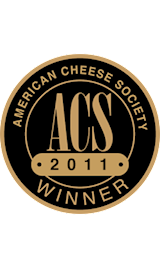TABLE OF CONTENTS
Best Canadian Foods
MAIN INGREDIENTS
Montreal smoked meat is a type of deli meat sandwich that originated in Montreal, Canada. It's similar to corned beef and pastrami sandwiches, but the meat used has its own distinct preparation process and flavor profile. Pastrami was invented in Romania, a cured beef product prepared by pickling and smoking the fatty and succulent cuts of brisket, then covering them with a coating of various spices and peppercorns.
Reuben Schwartz, a Romanian immigrant, started making smoked meat in Montreal in 1928, a product similar to the original pastrami. Called viande fumé in the Quebec province, it is a much sturdier product with an intense, smoky flavor.
MAIN INGREDIENTS
Uramaki, California roll, or upside-down sushi is a unique sushi variety which has its origins disputed between Los Angeles and Vancouver, although most people claim that it was invented in California in the 1960s by a Japanese chef named Ichiro Mashita.
This sushi roll is prepared with sushi rice, nori, fish (mostly tuna or salmon), avocado, and cucumber. It differs from other sushi types because the rice is on the exterior, wrapped around nori seaweed that is in the inner part and surrounds the filling.
OTHER VARIATIONS OF Sushi
MAIN INGREDIENTS
Cedar-plank salmon is a fish delicacy that involves cooking salmon on cedar planks, a unique method of cooking which is believed to have been originally practiced by the Native Americans who mostly used Western red cedar (a type of cypress). The wood planks, which must be free from any surface coatings or chemicals, are typically immersed in water into which coarse salt, fruit juice, or wine can be added.
Once dried and heated on the grill, the planks are topped with salmon fillets that can either be left with their skin intact or skinned. Salmon is typically marinated in oil, seasonings, and fresh aromatic herbs such as rosemary, thyme, dill, oregano, parsley, juniper berries, or even fir needles.
MAIN INGREDIENTS
Montreal-style smoked meat is a type of deli meat that originated in Montreal, Canada. It's similar to corned beef and pastrami but has its own distinct preparation process and flavor profile. The meat, typically a high-quality cut of beef brisket, is first cured in a mixture of spices, which often includes coriander, garlic, black pepper, and mustard seeds.
The curing process can last a week or more, during which time the meat absorbs the flavors of the spices. After curing, the meat is hot-smoked to cook through and absorb the flavors of the smoke. The final step in preparing Montreal smoked meat is steaming the meat until it is tender enough to fall apart.
MAIN INGREDIENTS
Originating from Toronto, this simple sandwich consists of thick slices of fatty and crispy peameal bacon on a Kaiser bun. The bun soaks up the bacon's juices, developing its own meaty texture in the process. The sandwich is usually paired with mustard, and nowadays there are even modern versions with added cheese, eggs, tomatoes, or lettuce.
The bacon is called peameal because it used to be rolled in ground yellow peas, and although it's now typically rolled in cornmeal, the name peameal bacon remains unchanged.
MAIN INGREDIENTS
Even though its name stems from the French boudin—a word that usually refers to the pudding-like fillings of sausages—this soppy treat originating from the French Canadian province of Quebec consists of french fries drowned in a thick, brown gravy dotted with clumps of pale, soft, semi-creamy cheese curds.
The potatoes are more coarsely cut than regular fries, and they are sometimes even fried twice so that the exterior remains crispy while the interior remains soft, whereas the cheese does not melt but just softens, adding that special squeakiness to the dish, and the gravy is made with either beef or chicken stock with the addition of vinegar.
MOST ICONIC Poutine
View moreMAIN INGREDIENTS
A local delicacy in the cuisine of the Midwestern United States and Canada, deep-fried cheese curds are made from curds that form before cheeses like cheddar are formed into blocks or wheels and left to age. Fresh curds have a rubbery texture and squeak slightly when bitten into, which is why they are sometimes referred to as squeaky cheese.
The squeak is a sign of its freshness, and after about twelve hours, the curds begin to lose their squeak, so they should be eaten on the day they are produced. Since there are many cheese factories and dairies in Wisconsin, the best and freshest cheese curds are produced in that state.
MAIN INGREDIENTS
Beaver tails are sweet, flat, and thin Canadian pastries made from whole wheat flour. The dough is hand-stretched and shaped to look like a beaver's tail - unsurprisingly, one of Canada's national symbols. The shaped dough is fried (a technique referred to as float-cooking) on canola oil and smothered with butter and a variety of different toppings.
Beaver Tails originated from a recipe created by Grant Hooker's family and have been served commercially since 1978. It is believed that the pastry evolved from a yeasty, wheaty dessert made from excess dough that was first made on early Canadian and American farms.
MAIN INGREDIENTS
This bagel variety came to Montreal with the wave of Eastern European Jewish immigrants during the early 1900s. There are varying theories about the creator of the first Montreal-style bagel – some claim it was a baker named Isadore Schlafman, while others say it was Hyman Seligman from Dvinsk, who sold them from a horse-drawn carriage.
Before baking, these bagels are boiled in kettles of honey water. Unlike New York-style bagels, these contain no salt and are less dense, with a slightly sweeter flavor. They are rolled and cut by hand and have a large hole in the center. Because Montreal bagels are wood-fired, it results in a crispy exterior and a chewy interior of the dough.
MAIN INGREDIENTS
Pancakes are traditionally consumed across North America and Canada, made from a starchy batter, eggs, milk, and butter. Their origin is probably German, with the traditional Pfannkuchen recipe being brought by German immigrants who settled in the United States in the eighteenth and nineteenth centuries.
The pancake has a similar appearance and flavor as the French crêpe but differs in diameter (5 to 10 cm) and thickness. The thickness is achieved by the use of a leavening agent, either baking soda or nutritional yeast. American and Canadian pancakes are typically served for breakfast, in a pile, topped with maple syrup and butter.
MOST ICONIC Pancakes with maple syrup
View moreTABLE OF CONTENTS
Best Canadian Food Producers
Abbaye de Saint-Benoît-du-Lac is a renowned artisanal cheesemaker located in the Benedictine monastery of Saint-Benoît-du-Lac, Quebec. Founded in 1912, the monastery began producing cheese in the 1940s, blending European monastic traditions with Quebec terroir.
They are especially famous for their award-winning blue cheeses, such as Bleu Bénédictin, celebrated for its creamy texture and balanced sharpness. All cheeses are handcrafted by monks and artisans using locally sourced milk, with a focus on quality and authenticity.
BEST Abbaye de Saint-Benoît-du-Lac Cheeses
Mowi Canada West is a leading producer of Atlantic salmon in Western Canada, known for its strong commitment to sustainability and quality. Based in Campbell River, British Columbia, the company operates salmon farms along the coasts of British Columbia and Vancouver Island, producing approximately 23,000 tons of fresh and healthy Atlantic salmon annually.
The company is dedicated to environmental stewardship, as demonstrated by the fact that all of its farms are certified by the Aquaculture Stewardship Council (ASC) and Best Aquaculture Practices (BAP). These certifications reflect Mowi’s commitment to transparency, innovation, and reducing its environmental footprint.
BEST Mowi Canada West Seafood
Inniskillin Winery, located in the heart of Canada’s wine region in Niagara-on-the-Lake, is renowned for producing world-class wines that have won international awards and recognition. Founded in 1975, Inniskillin is a pioneer in Canadian winemaking, especially known for its exceptional ice wines.
Their dedicated approach to viticulture, combined with rich vineyards on the shores of Lake Ontario, allows them to produce wines that reflect the uniqueness of Canada’s nature and terroir. The winery prides itself on using only the highest quality grapes, often handpicked, ensuring the excellence of every vineyard.
AWARDS

IWSC- International wine & spirit competition - Gold
2024, 2023, 2022, 2021, 2019

Decanter World Wine Awards - Platinum
2021, 2016

Vivino - 4.5
BEST Inniskillin Winery Wines
Jakeman's Maple Products is a family-owned company with over 140 years of tradition in producing premium, 100% pure maple syrup. Their syrup is locally sourced from more than 200 small maple farms across Ontario, supporting local farmers and communities.
In addition to maple syrup, the company offers a variety of other maple-based products such as cookies, candies, and pancake mixes, providing consumers with a wide range of delicious options. Jakeman's Maple Products is committed to sustainability and innovation, integrating clean technologies into their operations to ensure environmentally friendly and successful production.
BEST Jakeman's Condiments
Prince Edward Aqua Farms is renowned for producing premium shellfish, particularly their Island Gold Blue Mussels, which have earned international acclaim for their delicate flavor and nutritional value. Cultivated in the pristine natural bays of Prince Edward Island, these mussels are rope-grown, resulting in top-quality, hearty meats harvested year-round. The company is committed to environmental stewardship, implementing sustainable practices across all operations.
This dedication is exemplified by their Ocean Wise certification, assuring consumers that their products are an environmentally responsible seafood choice. Beyond mussels, Prince Edward Aqua Farms offers a diverse selection of shellfish, including oysters, clams, and quahogs, all cultivated and harvested with the same meticulous attention to quality.
BEST Prince Edward Aqua Farms Seafood
Lobsters 'R' Us is a respected seafood producer specializing in the supply of premium live lobsters and snow crab. Their commitment to excellence at every stage of the process—from harvest to delivery—ensures freshness, safety, and authentic ocean flavor.
Through close collaboration with local fishers and the use of state-of-the-art storage facilities, the company maintains ideal conditions to preserve the natural quality of its products. Energy-efficient technology and an advanced traceability system guarantee consistent quality and full transparency in every shipment.
BEST Lobsters 'R' Us Seafood
Clearwater Seafoods is a leading Canadian company specializing in premium, wild-caught seafood. Founded in 1976 as a small local lobster shop in Nova Scotia, Clearwater has grown over the decades into one of the largest vertically integrated seafood companies in North America, renowned for its superior quality, food safety, and reliable global distribution.
Its product range includes a wide variety of shellfish, including scallops, lobsters, clams, snow crab, Norwegian lobster (langoustine), rock crab, whelk, and turbot. All products are certified by the Marine Stewardship Council (MSC), ensuring their sustainability and exceptional quality.
BEST Clearwater Seafoods Seafood
Mellis Chocolate is a luxury chocolatier celebrated for its handcrafted, award-winning pralines and fine chocolate creations that fuse premium ingredients with inventive flavor combinations. Every piece reflects a commitment to excellence, showcasing the artistry of chocolate-making through meticulous attention to detail, harmony, and purity.
Drawing inspiration from seasonal and locally sourced ingredients, Mellis designs collections that do more than please the palate—they tell a story. Each creation evokes memory, shared moments, and multisensory delight. Honored with numerous awards from esteemed international competitions, Mellis chocolates embody sophistication, elegance, and craftsmanship in every bite.
AWARDS

Academy of Chocolate - Gold
2023

International Chocolate Awards - Bronze
2023, 2017

Academy of Chocolate - Bronze
2024, 2023
BEST Mellis Chocolate Chocolates
Quails' Gate Winery is one of the most prestigious and respected wineries in Canada, located in the heart of the Okanagan Valley wine region in British Columbia. With a rich family tradition dating back to 1956, the winery prides itself on crafting wines that express the unique character of the region’s soil and climate.
Renowned for premium varietals such as Pinot Noir and Chardonnay, Quails' Gate combines meticulously cared-for vineyards, expert winemaking, and a strong commitment to sustainable practices. The winery continually invests in innovation and quality, ensuring that every step of the process—from harvest to bottling—is designed to produce wines that exceed expectations.
AWARDS

Vivino - 4.5

Vivino - 4.2

Vivino - 4.1
BEST Quails' Gate Winery Wines
Fromagerie Fritz Kaiser is a family-run cheesemaker dedicated to artisanal production that beautifully blends Swiss tradition with the richness of Canadian terroir. Every cheese is crafted with care and precision, using high-quality milk and time-honored methods that respect patience, nature, and the art of aging.
Known for their rich flavors, smooth textures, and distinctive character, their cheeses mature on pinewood boards, developing depth and complexity over time. The selection ranges from soft and delicate to bold and aged varieties—perfect for everyday enjoyment or gourmet experiences.
AWARDS

American Cheese Society Judging & Competition Awards - 1st Place
2011, 2010
BEST Fromagerie Fritz Kaiser Cheeses
TABLE OF CONTENTS
Best Canadian Food Products
Jakeman's Pure Maple Syrup is a premium Canadian maple syrup, renowned for its rich flavor and smooth texture. Made from 100% pure maple sap, it is carefully sourced from local farms across Ontario, including communities like the Mennonite region of St. Jacobs and the vast maple forests of Northern Ontario.
This syrup is the perfect breakfast companion—ideal for pancakes, waffles, or oatmeal. It can also be used as a natural sweetener in a variety of recipes, adding an authentic Canadian touch to your dishes. Jakeman's Maple Products is a family-owned company with a tradition dating back to 1876, dedicated to supporting local communities and producing award-winning maple syrup.
Inniskillin Vidal Icewine 2022 is an exceptional Canadian dessert wine that reflects Inniskillin’s commitment to creating world-class ice wines. Made from 100% Vidal Blanc grapes from vineyards in the Niagara region, this wine offers a wealth of aromas and flavors that captivate wine lovers.
The wine has a deep golden color with hints of orange, indicating its maturity. The aromas are rich and varied, with prominent notes of roasted pineapple peel, candied papaya, creamy peach, apple pie spice, and fragrant nectar. On the palate, this ice wine is full and rich, with vibrant acidity and bubbles that cut through its dense texture.
AWARDS

IWSC- International wine & spirit competition - Gold
2024
Mowi Premium Atlantic Salmon, produced by Mowi Canada West in Campbell River, British Columbia, is one of the finest examples of premium farmed salmon in the world. Raised in the cold, clear waters of Canada’s Pacific coast, this salmon is celebrated for its rich, buttery flavor, vibrant natural color, and beautifully marbled texture.
A favorite among top chefs and gourmet retailers worldwide, it is prized for its versatility — perfect for sushi, sashimi, grilling, or roasting. Mowi’s commitment to sustainability is reflected in its ASC (Aquaculture Stewardship Council) certification, ensuring responsible farming practices and full traceability from egg to plate.
Bleu Bénédictin is a semi-firm blue cheese handcrafted with care and tradition by Benedictine monks in the heart of Quebec. Made from pasteurized cow’s milk and aged for a minimum of 90 days, this cheese develops a natural greyish rind and a beautifully marbled interior with striking blue veins.
Its texture is creamy, and its flavor is perfectly balanced—offering earthy undertones, a gentle saltiness, and subtle woody notes reminiscent of wild mushrooms. Bleu Bénédictin is incredibly versatile: ideal for serving with crackers, fresh bread, fruit, or nuts, and equally delicious when incorporated into gourmet recipes.
Organic Choice Mussels are a delicacy raised in harmony with nature. These mussels are known for their exceptional quality—each shell holds plump, tender meat with a mild, slightly sweet flavor. From seed to harvest, they are cultivated with great care, earning them an international reputation.
Every bite is rich in natural nutrients and full of flavor, just the way organic food lovers expect. Organic Choice Mussels proudly carry organic certification from Global Trust (now part of SAI Global), a global leader in aquaculture standards. This certification confirms that our mussels are farmed and processed in accordance with the strictest rules of organic production.
Princess Delights are premium oysters cultivated by Prince Edward Aqua Farms in the cold, pristine waters of Prince Edward Island—a natural environment that provides the perfect conditions for their growth and development. These oysters are celebrated for their rich, rounded flavor profile, featuring deep, buttery, and earthy notes, balanced perfectly with a clean brininess and a crisp texture that finishes refreshingly on the palate.
Their taste is refined and layered, each oyster reveals subtle nuances that evolve with every bite, from light mineral tones to the full-bodied essence of the sea, making them a delightful experience for the senses. Whether served raw on the half shell with a splash of lemon, gently baked, or featured in gourmet recipes, Princess Delights maintain their depth of flavor and fresh texture in every preparation.
The Americian lobster is one of the world’s most prized seafood delicacies and the lobsters offered by Lobsters 'R' Us stand out for their exceptional freshness, flavor, and quality. The cold environment slows their growth, allowing for a natural buildup of protein and nutrients.
This results in meat that is denser, juicier, and more flavorful—delivering a deep, well-rounded taste that needs little enhancement. It’s a pure expression of the ocean’s finest. Whether boiled, grilled, or used in gourmet dishes, Atlantic lobster from Lobsters 'R' Us leaves a lasting impression.
Spot Prawns Whole are one of the West Coast’s most prized seafood delicacies, celebrated for their natural sweetness, tender texture, and delicate flavor. Harvested from the cold, pristine waters of the Pacific Ocean, these whole prawns complete with head and shell are flash-frozen at sea to lock in peak freshness and preserve their full culinary potential.
Caught using sustainable and responsible fishing practices, these spot prawns are a true reflection of the care and quality that Finest At Sea is known for. With their firm, juicy meat and rich taste, they offer a premium seafood experience that’s both delicious and eco-conscious.
Clearwater’s Snow Crab are a premium seafood delicacy, sustainably harvested from the cold, pristine waters of the North Atlantic, known for their naturally sweet flavor, juicy texture, and delicate snow-white meat. These crabs are fully cooked and frozen at peak freshness, making them ideal for a variety of culinary uses—from appetizers and seafood platters to main courses.
Each cluster features one side of crab legs and a claw, carefully processed and packed to preserve maximum freshness and quality. Caught and handled according to the highest food safety standards and certified by the MSC, these crab clusters are not only a gourmet delight but also a responsible choice for consumers who value sustainability and natural purity.
Discover the authentic taste of Canadian tradition with Sirop d'Érable Pur from Nos Cabanes. This high-quality maple syrup is perfect for tasting or as a gift. Made from carefully selected maple sap, this syrup is 100% natural, free from additives and preservatives.
Its rich, smooth texture and unique caramel-woody aroma make it a perfect addition to pancakes, waffles, yogurt, or as a natural sweetener for your favorite drinks and recipes. Nos Cabanes brings you the best of tradition and artisanal craftsmanship, allowing you to enjoy the pure taste of real maple syrup.




TasteAtlas food rankings are based on the ratings of the TasteAtlas audience, with a series of mechanisms that recognize real users and that ignore bot, nationalist or local patriotic ratings, and give additional value to the ratings of users that the system recognizes as knowledgeable. For the “Top 100 Canadian Foods” list until April 27, 2025, 3,853 ratings were recorded, of which 3,399 were recognized by the system as legitimate. TasteAtlas Rankings should not be seen as the final global conclusion about food. Their purpose is to promote excellent local foods, instill pride in traditional dishes, and arouse curiosity about dishes you haven’t tried.



































































































































































































































